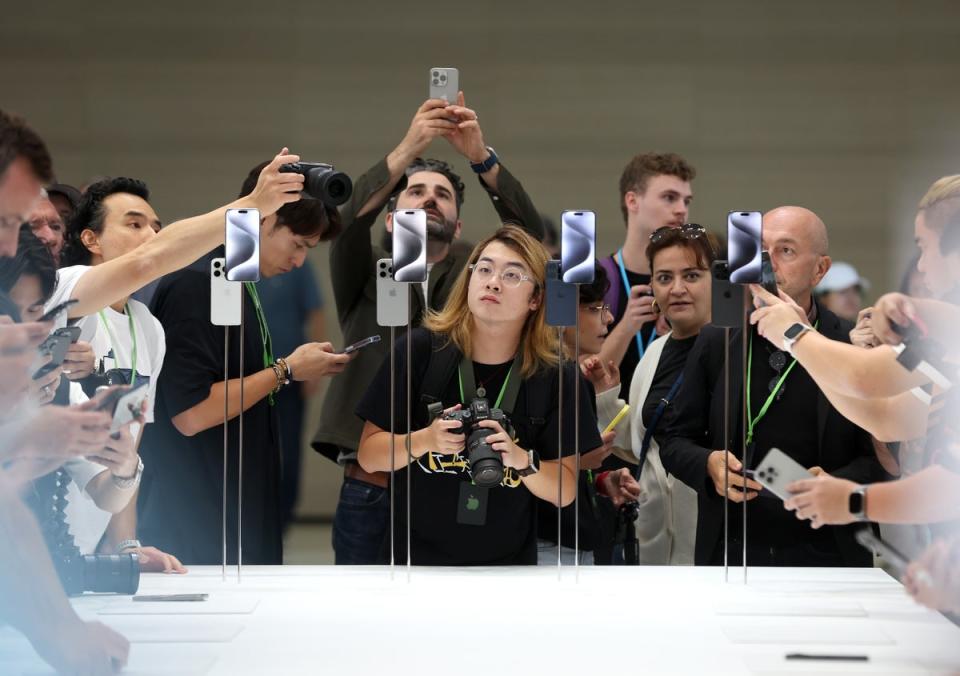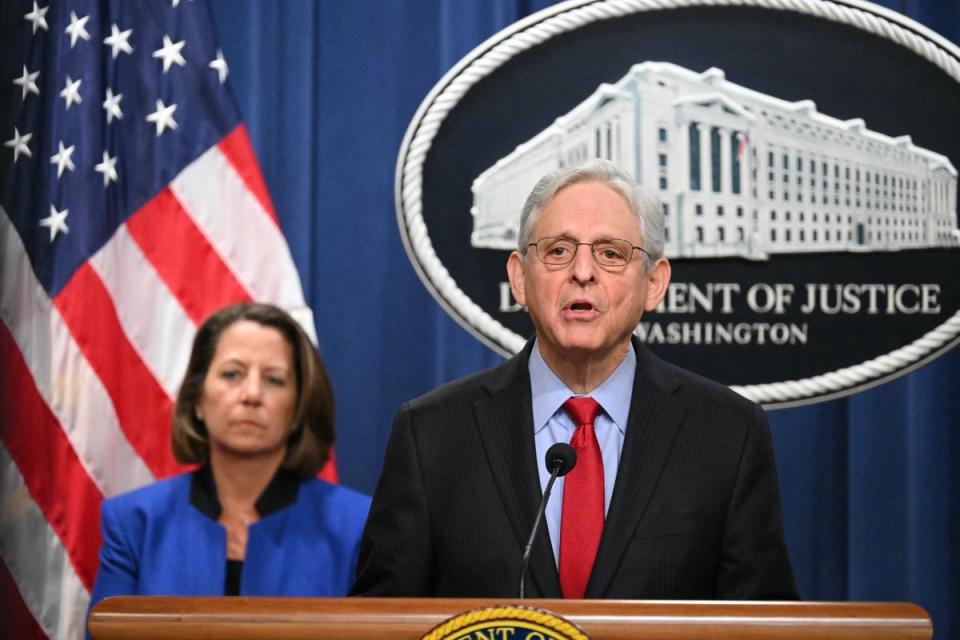To the US government, Apple is something of a disease: it is spreading further and further, destroying any competition in its path. The problem infected much of the world and even made the iPhone worse by damaging Apple’s own kernel.
The tech giant’s anticompetitive conduct “is reflected across industries including financial services, fitness, gaming, social media, news media, entertainment and more,” a new lawsuit says.
“Unless Apple’s anticompetitive and exclusionary behavior is stopped, it is likely to expand and consolidate its iPhone monopoly into other markets and parts of the economy.”
This was one of many accusations that the U.S. Department of Justice filed against Apple last week, alleging that the company is illegally using its monopoly to maintain its foothold in the smartphone market.
There would be more to come a few days later when the European Union announced that it would launch an investigation into Apple, Meta and Google over allegations that they had failed to properly comply with the new Digital Markets Act (DMA).
Apple currently faces regulatory scrutiny on both sides of the Atlantic. The company, which was once a scrappy startup and still often sees itself as such, has grown into one of the largest businesses on the planet. Recently it seems that governments are starting to see this as a danger, something that could harm their citizens’ experience.
The cases in both Europe and the US are based on a fairly simple premise: Apple’s control of its platforms allows it to crush competition and thereby harm consumers, and its power must be limited through regulation.
The US case, for example, suggests Apple could use its control over the iPhone and its platform to favor the Apple Watch, meaning other potentially better smartwatches won’t have access to the same features. While this is one complaint among many, they’re all largely versions of the same problem: features and benefits are hidden from customers so Apple can preserve its power and money.


Apple sees various regulations as a threat, or at least wants people to think so. In a statement responding to the US lawsuit, he suggested he might be forced to fundamentally change.
“This lawsuit threatens who we are and the principles that differentiate Apple products in highly competitive markets,” he said. “If successful, it will hinder our ability to create the kind of technology that people expect from Apple, where hardware, software and services intersect. “This would also set a dangerous precedent and give the government the power to heavily interfere in designing people’s technologies.”
Apple is right that the consequences of the trial could be dramatic. For example, the DMA gives authorities rare leeway to impose meaningful fines: companies can have to pay up to 10 percent of their annual turnover. The case in the US is less specific; It merely seeks “relief” that would prevent Apple from acting illegally, but could still lead to dramatic penalties.
But it is also unusual for the company to publicly respond to these regulations. His approach to DMA, for example, seems to be to introduce some form of compliance, try it out, and then adjust as needed. At hearings on the EU case recently, Apple advised an affected developer that some of the legislation looked potentially concerning and that they should be on the lookout for a response.
The lawsuits in both Europe and the US are based on a fairly simple premise: Apple’s control over its platforms allows it to crush competition and therefore harm consumers.
Similarly, Apple appeared to have taken on the Justice Department by adjusting its rules for game streaming services, a central tenet of the complaint, just a few weeks before the lawsuit was announced.
That’s one of the problems with trying to control companies through the courts. This action by the EU has been followed for years and includes comprehensive regulations and penalties for non-compliance with the rules.
It also requires Apple to allow its users to download apps from other third-party app stores – Apple has been complaining about the changes for years and may have only complied with them in the most resistant way, but it has acknowledged the necessity of doing so.
The US government chose to use existing laws to bring down Apple, possibly due to political issues that made it difficult to pass new laws. In fact, its action against Apple is based on a surprisingly old law: the Sherman Anti-trust Act of 1890, closer to the beginning of the United States than it is today. It was intended to limit the power of growing trusts that were in the process of taking over tobacco, steel, oil and other major industries, and was signed at a time when the main concern was railways, not broadband connections.


Still, it remained useful to lawmakers looking to rein in corporations. Their basic principle that a monopoly is permissible, but using that monopoly status to control the market is not, has been applied to tech companies in ways that John Sherman, the senator who wrote the law, could never have foreseen.
For example, it was used in 2001 when the United States sued Microsoft, claiming that it had illegally monopolized the browser market with its Windows product. The government initially tried to break up the company, but eventually agreed to limited new rules for Microsoft and Windows, some of which were later removed on appeal.
At the time, the case was hailed as a major breakthrough in the rules governing personal computers; but Microsoft continued to dominate the market, and it was the mobile revolution, not the government, that partially dethroned it.
The Apple case may be a modern version of this: it targets the phones in people’s pockets, not the computers in their homes. It’s being introduced by a new generation of government lawyers dealing with new technology, but the principles they seek to support are much the same.
The outcome could be much the same: Big announcements on both sides and a potentially seismic shift in the tech landscape, followed by a quiet compromise that changes little.